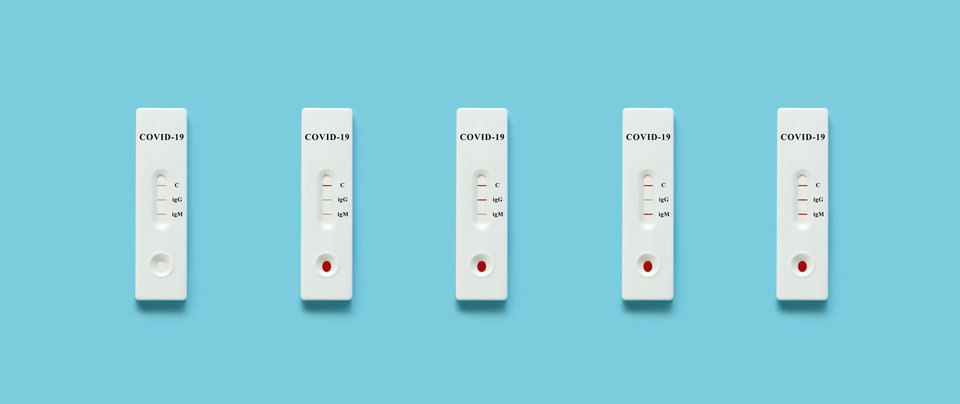
Covid-19 antigen tests will tremendously increase testing ability in the US
Each category of the diagnostic test has its own unique role in the fight against Covid-19. PCR tests can be incredibly accurate, but running the tests and analysing the results take time. One of the main advantages of an antigen test is the speed of the test, which can provide results in minutes. However, there is a trade-off between speed and accuracy, and while positive results from antigen tests are highly accurate, there is a higher chance of false-negative results.
Because of this, a negative result from an antigen test does not rule out infection.
The Food and Drug Administration (FDA) recommends using the more sensitive PCR-based Covid-19 test for individuals who test negative with antigen tests but appear symptomatic. This is an incredibly important stipulation as the US is set to distribute 150 million Abbott SARS-CoV-2 antigen tests for mass surveillance for the rest of 2020.
An antigen test is ideal for mass surveillance as the sample is simply performed on a test card and does not require the use of complex laboratory equipment. After waiting 15 minutes, the results can be read directly from the testing card. Furthermore, antigen tests can be used at point-of-care (POC) such as in a doctor’s office that operates under a Clinical Laboratory Improvement Amendments (CLIA) Certificate of Waiver, Certificate of Compliance, or Certificate of Accreditation.
On 26 August, the FDA granted emergency use authorisation (EUA) to Abbott Laboratories for a 15-minute antigen test that should ease testing bottlenecks and costs just $5. Abbott’s test is unique in that unlike conventional coronavirus diagnostic tests, Abbott’s test does not require specialised laboratory equipment, and instead, relies on lateral flow technology that is fast and portable (about the size of a credit card). With the Covid-19 antigen test, Abbott is also launching a complementary mobile app named NAVICA that will enable people who test negative to display a temporary digital health pass that is renewed each time a person is tested.
On 29 September, President Donald Trump announced the planned national distribution of 150 million of Abbott Laboratories’ Covid-19 antigen tests. Specifically, 18 million tests will go to nursing homes, 15 million to assisted living facilities, and ten million to hospice care agencies. Nearly one million tests will be provided to historically black colleges and universities, as well as tribal nation colleges. The remaining 100 million tests will be given to US states and territories to support efforts to reopen economies and schools, the president said.
According to US Department of Health and Human Services (HHS) Assistant Secretary for Health Brett Giroir, the US awarded Abbott a $760m contract for the 150 million Covid-19 antigen tests and awarded Puritan Medical Products a $120m contract to provide the nasal swabs used with the test. The US has performed over 118 million SARS-CoV-2 tests to date and is now averaging about 920,000 tests per day. Despite this, the percent positive test rate, the percentage of all coronavirus tests performed that are actually positive, or: (positive tests) / (total tests) x 100%, which is an indicator of viral spread in the US, is currently at 8%. The World Health Organization (WHO) recommends that the percent positive test rate remain below 5% for at least two weeks before governments consider reopening.
GlobalData marks the rollout of Abbott’s antigen test as the latest move by the federal government to make SARS-CoV-2 tests more widely available in the US. In late August, the HHS said it used the Defense Production Act (DPA) to accelerate the acquisition and supply of SARS-CoV-2 rapid antigen tests from Becton Dickinson and Quidel to nursing homes throughout the country. Meanwhile, the FDA has granted EUAs to 235 different SARS-CoV-2 tests, comprising 178 molecular diagnostics, 52 antibody tests, and four antigen tests.
For more insight and data, visit GlobalData's Medical Intelligence Centre
Market Insight from